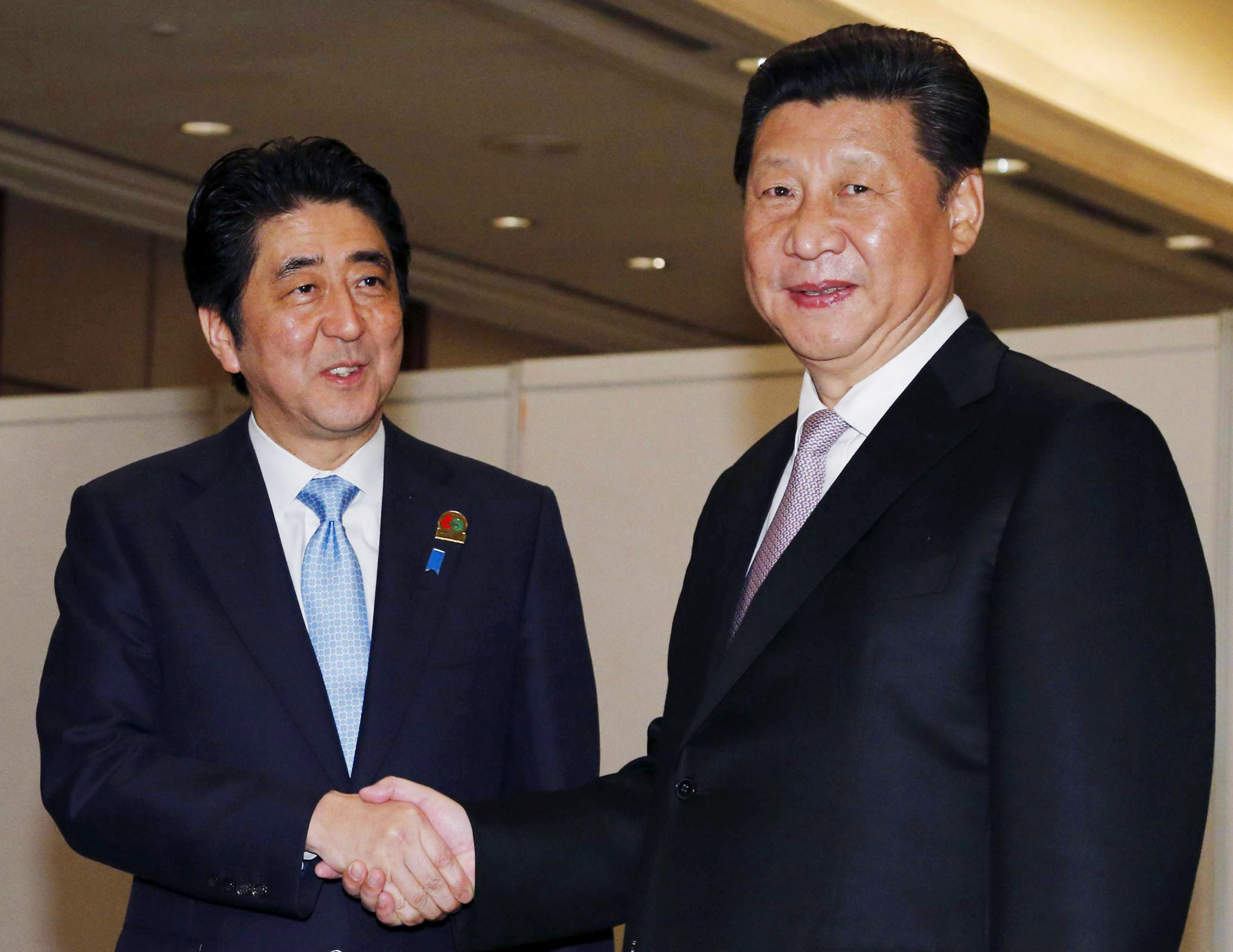China's Xi Jinping, Japan's Shinzo Abe call for better ties
Tokyo willing to work with Beijing to ease East China Sea tensions: Japanese PM

Xi went as far as saying that the two nations "would not become a threat to each other".
In talks on the sidelines of an Asia-Africa summit in Jakarta, Indonesia, Xi told Abe that China's initiative to boost connectivity with nations from Asia to Africa, and the establishment of the Asian Infrastructure Investment Bank (AIIB) - of which Japan is not a member - had received a positive response from many nations, CCTV reported.
Japanese officials said the two leaders talked for about 30 minutes in their first meeting since their talks in Beijing in November. Abe said later that the two leaders agreed to contribute to regional stability and prosperity by promoting "mutually beneficial strategic ties".
He added that Japan was also willing to work with China to ease tensions in the East China Sea, where the two nations have rival territorial claims, Japan's Kyodo news agency reported.
The talks were held as Sino-Japanese relations again become sensitive ahead of this year's 70th anniversary of the end of the second world war. China plans to hold a full military parade for the commemoration in September, while Abe will issue a statement on the war in August.
Xi told Abe that the historical issues are a "major matter of principle" facing political ties between the two nations, and called on Japan to seriously handle the concerns of its Asian neighbours. The president said China and Japan were cooperative partners who "would not become a threat to each other".
Xi also talked about how China's recent "One Belt, One Road" initiative and the establishment of the AIIB had been welcomed by the international community, according to state broadcaster CCTV.
Da Zhigang , an expert in Japanese affairs at the Heilongjiang Academy of Social Sciences, said Xi's remarks were a message to Abe not to step up rhetoric against China, especially during Abe's trip to the United States.
"By saying that China is not a threat, China is sending a message that Japan should be cautious in its security engagement with the US," Da said.
CCTV did not say whether Xi asked Japan to become a member of the AIIB, but Da said Japan's inclusion would boost the credibility of the institution. "The inclusion of the world's third-largest economy in the bank is crucial for the institute to establish itself as fair and transparent," Da said.
China is locked in rows over wartime and territorial disputes with Japan, and had once regarded Abe as an "unwelcome person" after his 2013 visit to the Yasukuni Shrine, which commemorates Japan's war dead, including some war criminals. Tensions have eased since the leaders' meeting in November.
However, in a sign that reflects the grudges persist, scores of Japanese lawmakers visited the shrine hours before the Xi-Abe talks yesterday, prompting a rebuke from Beijing.
"In this sensitive year, Japanese politicians should adhere to correct historical views and do more to promote reconciliation and mutual trust with Asian neighbours, and not the opposite," foreign ministry spokesman Hong Lei said.
Lian Degui , an analyst at the Shanghai Institutes for International Studies, expected ties between the two nations to improve, but added that Beijing would be "very alert" to Abe's statement on the war in August.

